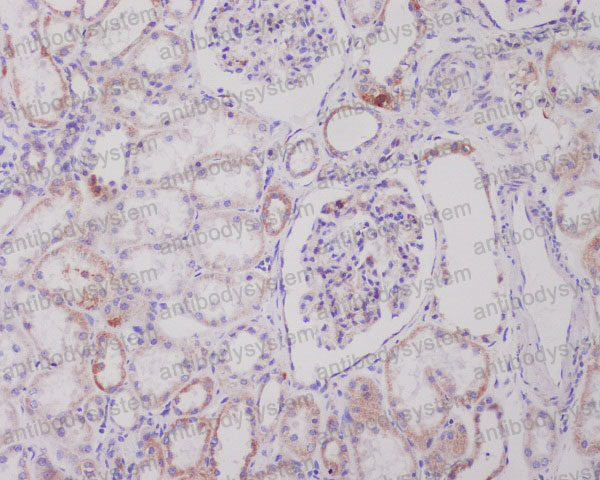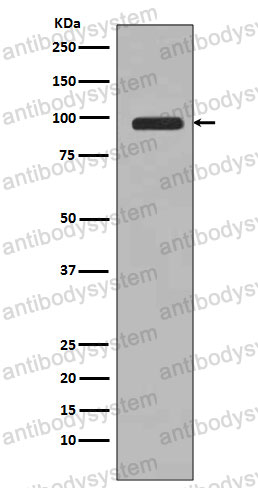Catalog No.
RHJ24501
Species reactivity
Human, Mouse, Rat
Host species
Rabbit
Isotype
IgG
Clonality
Monoclonal
Tested applications
IHC: 1:100-1:200, WB: 1:1000-1:2000
Target
PI3-kinase type 3, PI3K type 3, PI3 kinase type 3, Phosphatidylinositol 3-kinase p100 subunit, Phosphoinositide-3-kinase class 3, hVps34, PIK3C3, Vps 34, Vps34, PI3 kinase p100
Concentration
1 mg/ml
Endotoxin level
Please contact with the lab for this information.
Purity
>95% by SDS-PAGE.
Purification
Protein A/G purified from cell culture supernatant.
Accession
Q8NEB9
Applications
IHC, WB
Form
Liquid
Storage buffer
0.01M PBS, pH 7.4, 0.05% BSA, 50% Glycerol, 0.05% Sodium azide.
Stability and Storage
Use a manual defrost freezer and avoid repeated freeze-thaw cycles.
Store at +4 ℃ short term (1-2 weeks).
Store at -20 ℃ 12 months.
Store at -80 ℃ long term.
Clone ID
R1B29
Pik3c3 expression profiling in the mouse kidney and its role in proximal tubule cell physiology., PMID:39250817
Genome-wide CRISPR/Cas9 screen identifies SLC39A9 and PIK3C3 as crucial entry factors for Ebola virus infection., PMID:39173055
Thymic epithelial cells require lipid kinase Vps34 for CD4 but not CD8 T cell selection., PMID:35997680
Platelet autophagic machinery involved in thrombosis through a novel linkage of AMPK-MTOR to sphingolipid metabolism., PMID:33749503
Neutrophil autophagy during human active tuberculosis is modulated by SLAMF1., PMID:32954947
PDPK1 regulates autophagosome biogenesis by binding to PIK3C3., PMID:32876514
PKD2/polycystin-2 induces autophagy by forming a complex with BECN1., PMID:32543276
Binding of Avibirnavirus VP3 to the PIK3C3-PDPK1 complex inhibits autophagy by activating the AKT-MTOR pathway., PMID:31885313
Emerging views of mitophagy in immunity and autoimmune diseases., PMID:30951392
Morphological characterization of Class III phosphoinositide 3-kinase during mouse brain development., PMID:26242203
The human CD5L/AIM-CD36 axis: A novel autophagy inducer in macrophages that modulates inflammatory responses., PMID:25713983
Promoter variant of PIK3C3 is associated with autoimmunity against Ro and Sm epitopes in African-American lupus patients., PMID:20671926
Deletion of PIK3C3/Vps34 in sensory neurons causes rapid neurodegeneration by disrupting the endosomal but not the autophagic pathway., PMID:20439739


